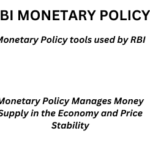The Centre has cancelled the FCRA licence of Rajiv Gandhi Foundation (RGF) and Rajiv Gandhi Charitable Trust (RGCT): Basics Explained

Recently the Ministry of
Home Affairs has cancelled the Foreign Contribution (Regulation) Act
(FCRA) licence of Rajiv Gandhi Foundation (RGF) and Rajiv Gandhi Charitable
Trust (RGCT), organisations that are associated with the Nehru-Gandhi family,
for alleged violations of the provisions of the Act.
What is the FCRA?
The FCRA regulates foreign
donations and ensures that such contributions do not adversely affect internal
security. First enacted in 1976, it was amended in 2010 when a slew of new
measures were adopted to regulate foreign donations.
Broadly, the FCRA
requires every person or NGO seeking to receive foreign donations to be (i)
registered under the Act, (ii) to open a bank account for the receipt of the
foreign funds in State Bank of India, Delhi, and (iii) to utilise those funds
only for the purpose for which they have been received and as stipulated in the
Act.
They are also required to
file annual returns, and they must not transfer the funds to another NGO.
The FCRA is applicable
to all associations, groups and NGOs which intend to receive foreign donations.
It is mandatory for all such NGOs to register themselves under the FCRA.
The registration is initially valid for five years and it can be renewed
subsequently if they comply with all norms. Registered associations can receive
foreign contribution for social, educational, religious, economic and cultural
purposes.
Filing of annual returns,
on the lines of Income Tax, is compulsory. In 2015, the MHA notified new rules,
which required NGOs to give an undertaking that the acceptance of foreign funds
is not likely to prejudicially affect the sovereignty and integrity of India or
impact friendly relations with any foreign state and does not disrupt communal
harmony. It also said all such NGOs would have to operate accounts in either
nationalised or private banks which have core banking facilities to allow
security agencies access on a real time basis.
Members of the
legislature and political parties, government officials, judges and media
persons are prohibited from receiving
any foreign contribution. However, in 2017 the MHA, through the Finance
Bill route, amended the 1976-repealed FCRA law paving the way for political
parties to receive funds from the Indian subsidiary of a foreign company or a
foreign company in which an Indian holds 50% or more shares.
The other way to receive
foreign contributions is by applying for prior permission. It is granted for
receipt of a specific amount from a specific donor for carrying out specific
activities or projects. But the association should be registered under statutes
such as the Societies Registration Act, 1860, the Indian Trusts Act, 1882, or
Section 25 of the Companies Act, 1956. A letter of commitment from the foreign
donor specifying the amount and purpose is also required.
The home ministry strengthened the FCRA
regulations in November 2020, clearly stating that NGOs that may
not be directly associated with a political party but participate in a
political intervention such as bandhs, strikes, or road blockades will be
regarded as having a political nature if they participate actively in politics
or party politics. Farmers’
organisations, student organisations, labour organisations, and caste-based
organisations are among the organisations included in this category.
Government prohibited public employees
from accepting foreign money under the FCRA amendment, and they made
Aadhaar a prerequisite for all NGOs’ office holders. According to the new
regulation, organisations that receive foreign funding are not permitted to
utilise more than 20% of those funds for administrative needs. Before 2020,
this percentage was capped at 50%. All NGOs that receive funding are required
by law to register with the FCRA.
The Centre has amended the
rules of the Foreign Contribution Regulation Act (FCRA), allowing
relatives to send more money under foreign funding and giving more time to
organisations to inform the government about bank accounts for utilisation of
funds received under the “registration” or “prior permission” category.
The new rules — Foreign
Contribution (Regulation) Amendment Rules, 2022 — were notified by the ministry
of home affairs (MHA) through a gazette notification on Friday.
- Indian citizens can now receive up to Rs 10 lakh
annually from relatives abroad without making any disclosure to the
government. beneficiaries will be required to make a formal disclosure
to the government within 90 days of receiving the funds in case they
exceed Rs 10 lakh in a year.
- It also removed a provision wherein an
organisation/individual receiving foreign funds had to declare such
contributions every quarter on its official website.
- Making changes in rule 9, which deals with the
application of obtaining ‘registration’ or ‘prior permission’ under the
FCRA to receive funds, the amended rules give individuals and
organisations 45 days to inform the MHA about bank account(s) that are to
be used for utilisation of such funds. This time limit was earlier 30
days.
- The Centre has also omitted provision ‘b’ in rule
13, which dealt with declaring foreign funds including details of donors,
amount received, and date of receipt every quarter on its website. Now, anyone
receiving foreign funds under the FCRA will have to follow the existing
provision of placing the audited statement of accounts on receipts and
utilisation of the foreign contribution, including income and expenditure
statement, receipt and payment account and balance sheet for every
financial year beginning on the first day of April, within nine months
of the closure of the financial year, on its official website or on the
website as specified by the Centre.
- In a separate notification on Friday, the MHA made
five more offences under FCRA “compoundable”, making 12 such
offences compoundable instead of directly prosecuting the organisations or
individuals. Earlier, only seven offences under FCRA were compoundable.
FCRA violations that have
become compoundable now include — failure to intimate about the receipt of
foreign funds, the opening of bank accounts, and failure to place
information on a website etc.
Earlier, offences related to
accepting hospitality from foreign entity without informing, defraying of
foreign funds for administrative use beyond permissible limit, receiving money
in account other than specified for foreign funds and four others were
compoundable. The amount of penalty ranges from ₹10,000 to ₹1 lakh or five
percent of foreign funds, whichever is higher.



0 Comments